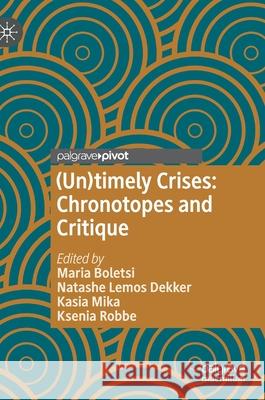(Un)Timely Crises: Chronotopes and Critique » książka
topmenu
(Un)Timely Crises: Chronotopes and Critique
ISBN-13: 9783030749453 / Angielski / Twarda / 2021 / 100 str.
Kategorie:
Kategorie BISAC:
Wydawca:
Palgrave MacMillan
Seria wydawnicza:
Język:
Angielski
ISBN-13:
9783030749453
Rok wydania:
2021
Wydanie:
2021
Numer serii:
000801737
Ilość stron:
100
Waga:
0.29 kg
Wymiary:
21.01 x 14.81 x 0.79
Oprawa:
Twarda
Wolumenów:
01
Dodatkowe informacje:
Wydanie ilustrowane











